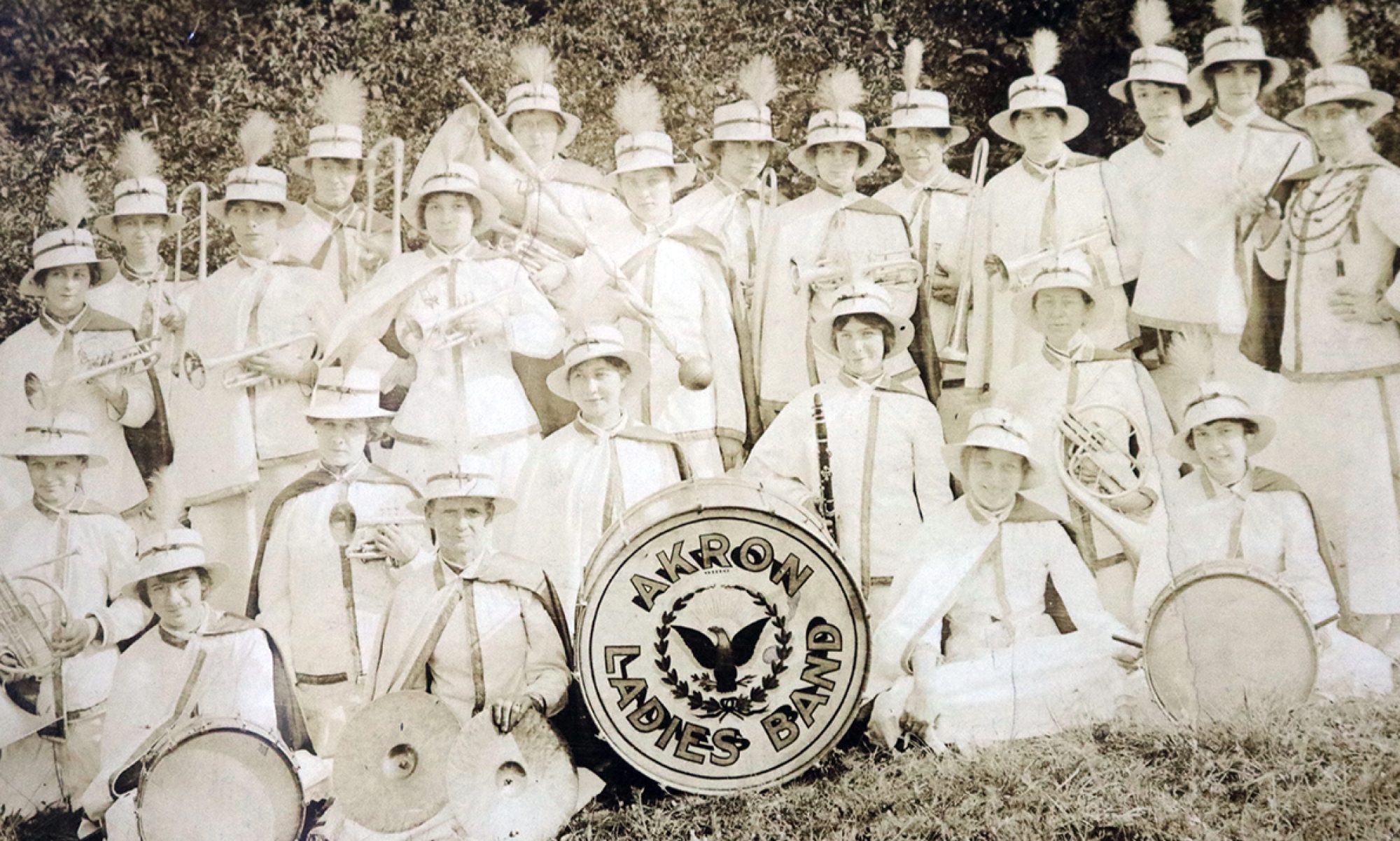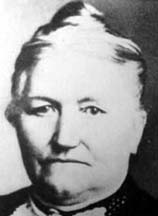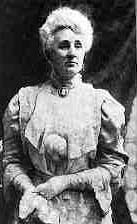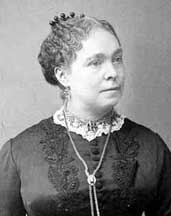Pamphila Stanton Wilcott was a woman who had always been defined in terms of her male relatives. She was the daughter of a prominent Steubenville, Ohio, physician. She was the sister of Edwin Stanton, secretary of War during the Civil War. She was the wife of a brilliant Akron attorney, who became assistant secretary of War. But Pamphila Stanton Wolcott deserves some credit of her own. She has been generally credited with organizing the Akron Soldiers Aid Society during the Civil War.
Pamphila Stanton was born in Steubenville, Ohio, in 1827; she was the daughter of David Stanton, a physician, and Lucy Norman. She was bright young woman but always stood in the shadow of her older brother Edwin. It was through her brother, then a successful attorney, that she met her future husband Christopher Parsons Wolcott. Young Wolcott was studying law with Edwin Stanton and his partner. In 1844, Pamphila Stanton and Christopher Wolcott married and moved to Akron.
Christopher Wolcott was a man on the make. He was a brilliant attorney and soon became the senior partner in the prosperous Akron law firm of Wolcott & Upson. But he would soon make his mark in politics. Governor Chase appointed Wolcott as the state’s Attorney General. In 1861, he was appointed Judge Advocate General. By 1862, he was working in Washington, D.C. with his brother in law and mentor Edwin Stanton at the War Department. Wolcott was assistant secretary of War. Wolcott was also a workaholic. His long days — the Summit Beacon reported that he worked from 6 a.m. until 2 a.m. every day — led to his early death in 1863.
While Christopher Wolcott was off traveling the state as Attorney General or working in Washington, his wife cared for the couple’s three sons and carried on her own life in Akron. She came into her own during the Civil War.
Pamphila Stanton Wolcott is generally credited with starting Akron’s Soldier’s Aid Society. She also served as its first president. Affiliated with Cleveland’s Sanitary Commission, the Akron society contributed literally thousands of dollars worth of food and clothing to the hospitalized wounded and sick soldiers. The Soldiers Aid Society members spent evenings knitting mittens and socks for soldiers. They also packed food and other goods for the Army in a small room above a store on South Howard Street. The food and goods were shipped to Cleveland’s Sanitary Commission and then onto the hospitals that cared for the wounded. In addition, the organization raised much money by holding “dime parties,” socials and dinners.
By 1862, she had retired from the leadership of the Soldiers Aid Society. Her husband’s ill health demanded her full attention.
Politically well connected, Pamphila Wolcott went on to hold a government position in Washington in the pension department from 1878 to 1882, during the administration of Rutherford B. Hayes, a president from Ohio.
At the time of her death, the Beacon Journal observed that Wolcott was extremely bright, very well connected politically and “happiest when working for the cause of charity.”
–Kathleen Endres




